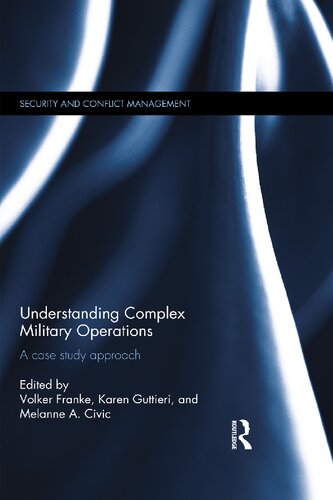

Most ebook files are in PDF format, so you can easily read them using various software such as Foxit Reader or directly on the Google Chrome browser.
Some ebook files are released by publishers in other formats such as .awz, .mobi, .epub, .fb2, etc. You may need to install specific software to read these formats on mobile/PC, such as Calibre.
Please read the tutorial at this link: https://ebookbell.com/faq
We offer FREE conversion to the popular formats you request; however, this may take some time. Therefore, right after payment, please email us, and we will try to provide the service as quickly as possible.
For some exceptional file formats or broken links (if any), please refrain from opening any disputes. Instead, email us first, and we will try to assist within a maximum of 6 hours.
EbookBell Team

4.1
40 reviewsThis volume provides materials for active learning about peacebuilding and conflict management in the context of complex stability operations.
Today, America faces security challenges unlike any it has faced before, many of which requiring lengthy U.S. involvement in stability operations. These challenges are exceedingly dynamic and complex because of the ever changing mix and number of actors involved, the pace with which the strategic and operational environments change, and the constraints placed on response options.
This volume presents a series of case studies to inspire active learning about peacebuilding and conflict management in the context of complex stability operations. The case studies highlight dilemmas pertaining to the story of the case (case dilemma) and to its larger policy implications (policy dilemma). The cases stimulate readers to "get inside the heads" of case protagonists with widely differing cultural backgrounds, professional experiences, and individual and organisational interests. Overall, Understanding Complex Military Operations challenges the reader to recognize the importance of specific national security related issues and their inherent dilemmas, deduce policy implications, and discern lessons that might apply to other – perhaps even non-security related – areas of public policy, administration, and management.
This volume will be of much interest to students of conflict prevention, transitional justice, peacebuilding, security studies and professionals conducting field-based operations in potentially hazardous environments.